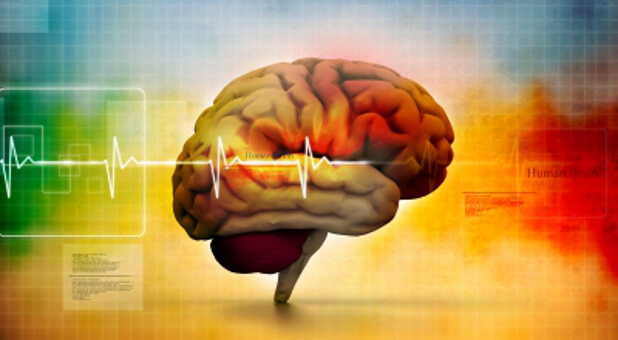The baby boomers will live longer than any generation in history, thanks to broad advances in modern medicine. Yet for millions of Americans, longer life will come with a cost—the greater likelihood of developing Alzheimer’s disease.
The leading cause of dementia has already reached crisis proportions in this country, striking 5 million Americans. It is the sixth-leading cause of death and the number of cases is expected to triple in coming decades.
But what if you could take a few simple steps to stay sharp as you grow older and even reverse the natural aging process that can take a toll on the brain? That, in essence, is the promise of a revolutionary new method developed by Gary Small, M.D., a professor of psychiatry at the University of California-Los Angeles and director of UCLALongevityCenter
In his new book, 2 Weeks to a Younger Brain, Dr. Small details how to improve your memory, learn and retain new information, and maintain the mental acuity of your prime years—no matter how old you are.
In an interview with Rick Unger on Newsmax TV’s Steve Malzberg Show, Dr. Small explains how he and his wife/co-author Gigi Vorgan have translated the latest brain science into practical strategies and exercises that yield quick and long-lasting benefits.
He says his plan can not only improve memory, but also strengthens one’s physical health by reducing the risk for diabetes, heart disease and stroke.
“There’s a lot of new science on the brain. It turns out a lot of people don’t realize how much control they have over their brain health and their memory,” says Dr. Small, author of The Mind Health Report newsletter.
“The first question people ask is: Can you really get my brain younger in two weeks? And my short answer is ‘yes.’ Honestly, we got the scientific evidence to show that. We’ve done studies looking at pencil and paper test on memory, but also (peering) into the brain with brain scans. We find after simple exercise after a couple of weeks we can literally rewire your brain and get it healthier, smarter and stronger.”
Dr. Small notes word puzzles, games that stretch the mind, memory-building exercises, and other brain-training techniques the book details can help work the brain in ways that mirror physical exercise—which is, itself, beneficial to mental health.
“If you use certain computer games, if you learn the memory techniques we teach in the book, you can actually get your brain wires to function better,” he says. “We can use the games and the puzzles to exercise our brains, build brain muscle, but there’s more than that. We need to get physical. Physical exercise is one of the best things you can for your brain.”
Dr. Small explains that exercises pushes the heart to pump oxygen and nutrients to your brain cells, which actually makes it get bigger and function better.
“In fact, your body produces chemicals [during exercise] that improve your mood as well as other chemicals that get your brain cells to communication more effectively.”
Dr. Small recommends getting at least 15 minutes of moderate-intensity exercises—such as brisk walking—every day. He also advises strength training several times a week, citing studies that show both boost brain size and function.
“A bigger brain is a better brain,” he says. “No matter what age, it’s remarkable.”
Dr. Small also notes diet is a key factor in brain health, as well as maintaining a healthy weight.
“One of the biggest problems we face today is an epidemic of overweight and obesity. It turns out that if you’re overweight, it doubles your risk of Alzheimer’s. If you’re obese, it quadruples your risk and that’s the bad news,” he notes.
“The good news is we find that if we put people who are obese on a strict diet and they lose weight, their memory improves in a few months. Your brain is very resilient if you take care of it. Also, you’ve got to think about the kinds of foods you eat.”
Dr. Small explains that nutrients such as omega-3 fatty acids in fish, nuts, fruits, vegetables and other healthy foods protect the brain and keep it in tip-top shape. On the other hand, processed and sugary foods can have the opposite effect.
The program he has developed in 2 Weeks to a Younger Brain has been effective for many of his patients, he says.
“What we do is lay out the program very simply and we show people the exercises to do,” he says. “We also convince them of the connection between their behavior and their brain health. If you understand that, you’re more likely to follow through.”
For the original article, visit newsmaxhealth.com.















































